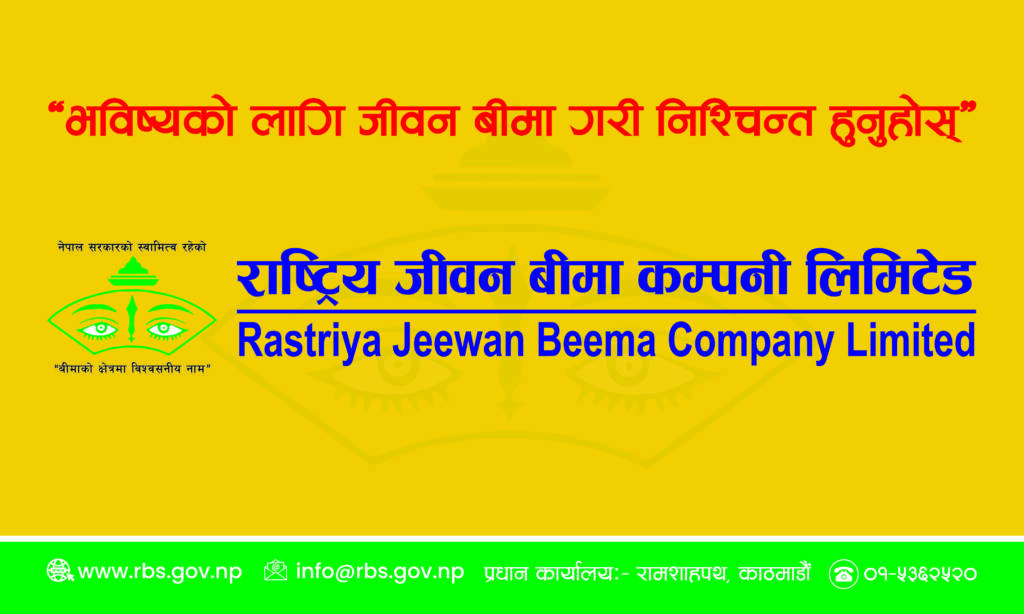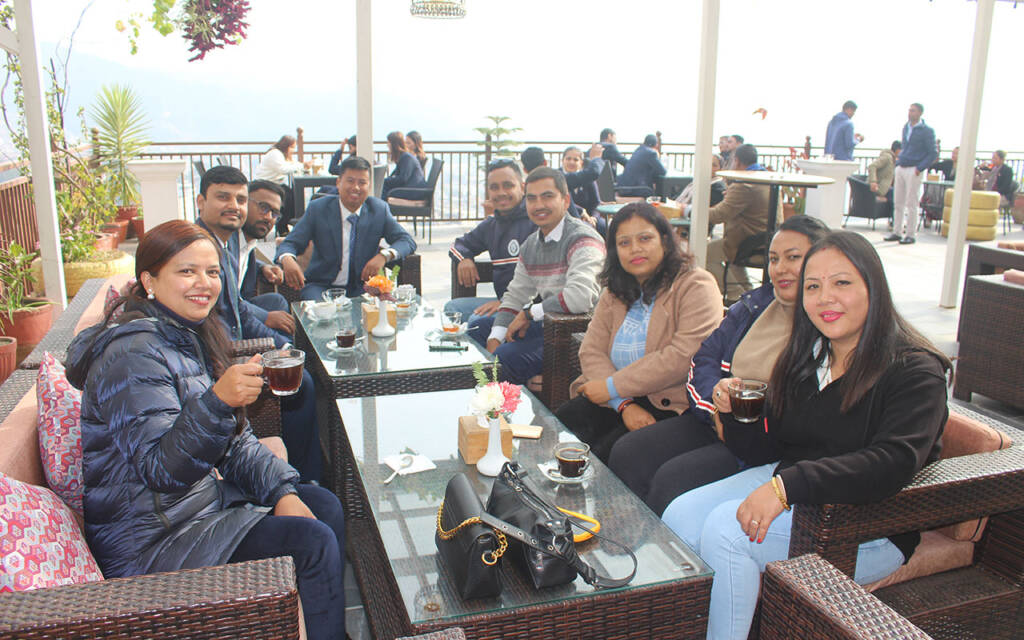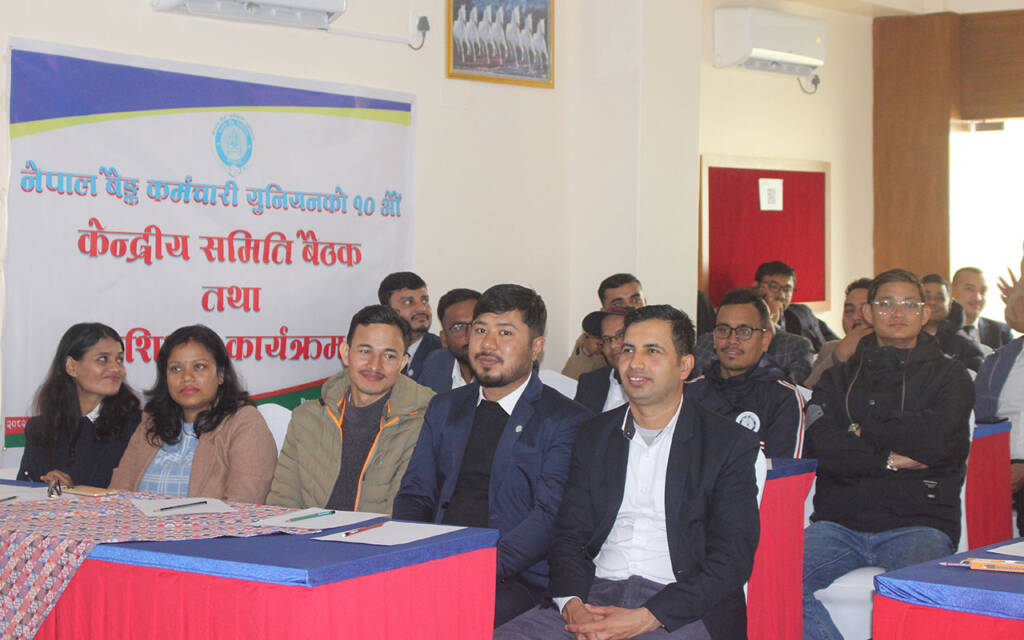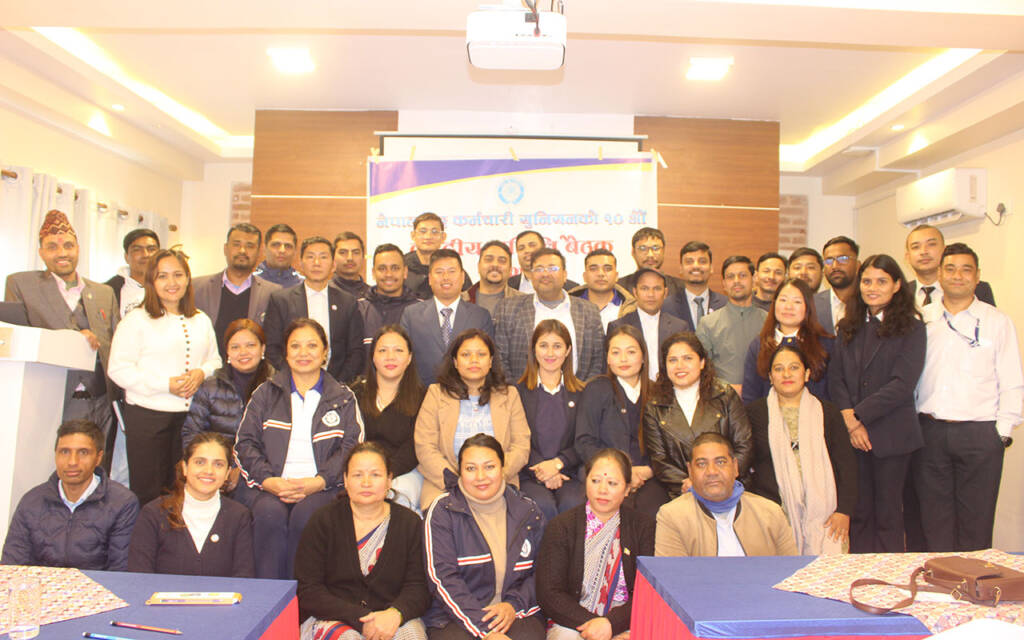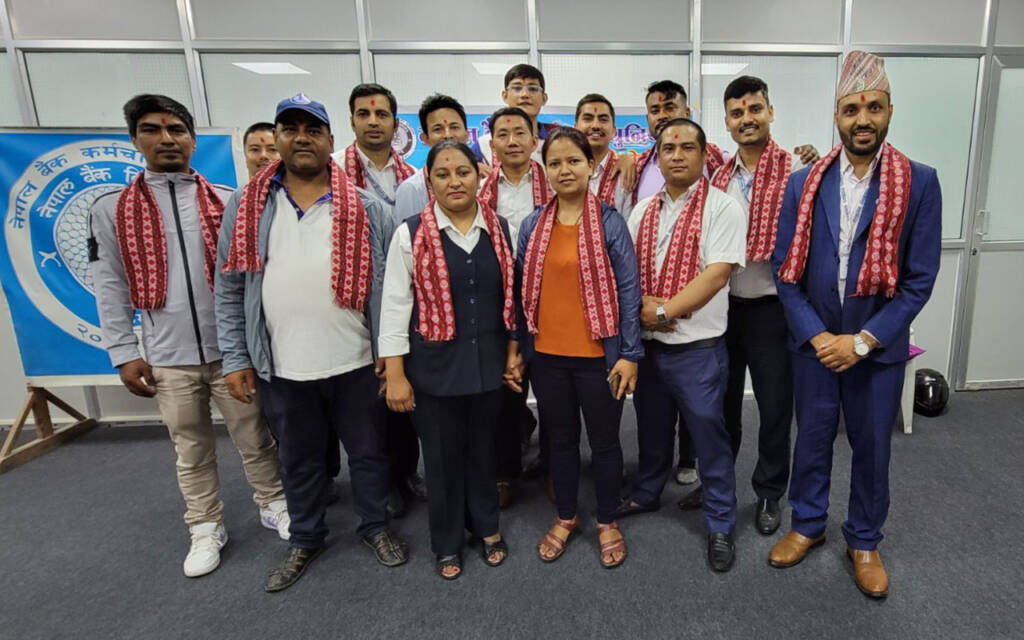 विषय प्रवेशः
निर्णयलाई सामान्य रुपमा विकल्पहरु विचको उत्कृष्टता छनौटको रुपमा लिने गरिन्छ । यो सही र गलत विचको छनौटको रुपमा रहने गर्दछ । यो दूई कार्ययोजना विचको सबल कार्य योजनाको चयनको रुपमा समेत रहने गर्दछ । निर्णयकर्ताको मुल्य र प्राथमिकताको आधारमा विकल्पहरुको पहिचान गर्ने र सर्वोत्तम
विषय प्रवेशः
निर्णयलाई सामान्य रुपमा विकल्पहरु विचको उत्कृष्टता छनौटको रुपमा लिने गरिन्छ । यो सही र गलत विचको छनौटको रुपमा रहने गर्दछ । यो दूई कार्ययोजना विचको सबल कार्य योजनाको चयनको रुपमा समेत रहने गर्दछ । निर्णयकर्ताको मुल्य र प्राथमिकताको आधारमा विकल्पहरुको पहिचान गर्ने र सर्वोत्तम
 Abstract
Nepal's banking industry plays a vital role in supporting its developing economy. For years, it's been run through a centralized system led by the Nepal Rastra Bank (NRB), which oversees regulations, monitoring, and monetary strategies. This approach has had some real wins, like ensuring stability
Abstract
Nepal's banking industry plays a vital role in supporting its developing economy. For years, it's been run through a centralized system led by the Nepal Rastra Bank (NRB), which oversees regulations, monitoring, and monetary strategies. This approach has had some real wins, like ensuring stability
 Emotional Intelligence (EI)
Emotional intelligence is the ability, competency and the personality trait of an employee to perceive, understand, utilize and manage emotions effectively. Goleman (1995) defined “Emotional intelligence aS the ability through which a person could screen his emotions, other persons’ emotions, differentiate between various
Emotional Intelligence (EI)
Emotional intelligence is the ability, competency and the personality trait of an employee to perceive, understand, utilize and manage emotions effectively. Goleman (1995) defined “Emotional intelligence aS the ability through which a person could screen his emotions, other persons’ emotions, differentiate between various
 Today, knowledge is considered as the sole strategic source of competitive advantage in the world economy (Zack, 1999). To survive in today's highly competitive environment, organizations must create new knowledge, distribute it and convert it to goods and services (Zafaryan et al., 2008). Organizations need
Today, knowledge is considered as the sole strategic source of competitive advantage in the world economy (Zack, 1999). To survive in today's highly competitive environment, organizations must create new knowledge, distribute it and convert it to goods and services (Zafaryan et al., 2008). Organizations need
 Abstract
The integration of Artificial Intelligence (AI) and Machine Learning (ML) in the Nepalese financial sector is a transformative development that offers numerous opportunities to enhance financial inclusion, optimize decision-making, and improve operational efficiency. However, its adoption faces challenges such as data quality, regulatory frameworks, and
Abstract
The integration of Artificial Intelligence (AI) and Machine Learning (ML) in the Nepalese financial sector is a transformative development that offers numerous opportunities to enhance financial inclusion, optimize decision-making, and improve operational efficiency. However, its adoption faces challenges such as data quality, regulatory frameworks, and
 The main objective of this paper is to investigate the relationship between balance of payments and macroeconomic variables in Nepal. It has considered four macroeconomic variables such as real gross domestic product, inflation, exchange rate with US dollar and broad money supply M2. Net foreign
The main objective of this paper is to investigate the relationship between balance of payments and macroeconomic variables in Nepal. It has considered four macroeconomic variables such as real gross domestic product, inflation, exchange rate with US dollar and broad money supply M2. Net foreign
 Abstract
The rapid expansion of Financial Technology (FinTech) has profoundly transformed the global economy, with notable implications for countries like Nepal. FinTech's innovative solutions have the potential to enhance financial inclusion by providing accessible banking services to remote and underserved regions. Additionally, it streamlines financial processes,
Abstract
The rapid expansion of Financial Technology (FinTech) has profoundly transformed the global economy, with notable implications for countries like Nepal. FinTech's innovative solutions have the potential to enhance financial inclusion by providing accessible banking services to remote and underserved regions. Additionally, it streamlines financial processes,
 Abstract
Due to its implications for energy conservation and the avoided economic costs, households' underinvestment in energy-efficient technologies continue to be a major concern for policymakers. The reception of energy-efficient machines, durables and technologies by an economic agent offers both energy preservation and financial benefits. Refrigerators,
Abstract
Due to its implications for energy conservation and the avoided economic costs, households' underinvestment in energy-efficient technologies continue to be a major concern for policymakers. The reception of energy-efficient machines, durables and technologies by an economic agent offers both energy preservation and financial benefits. Refrigerators,
 विषय प्रवेशः
निर्णयलाई सामान्य रुपमा विकल्पहरु विचको उत्कृष्टता छनौटको रुपमा लिने गरिन्छ । यो सही र गलत विचको छनौटको रुपमा रहने गर्दछ । यो दूई कार्ययोजना विचको सबल कार्य योजनाको चयनको रुपमा समेत रहने गर्दछ । निर्णयकर्ताको मुल्य र प्राथमिकताको आधारमा विकल्पहरुको पहिचान गर्ने र सर्वोत्तम
विषय प्रवेशः
निर्णयलाई सामान्य रुपमा विकल्पहरु विचको उत्कृष्टता छनौटको रुपमा लिने गरिन्छ । यो सही र गलत विचको छनौटको रुपमा रहने गर्दछ । यो दूई कार्ययोजना विचको सबल कार्य योजनाको चयनको रुपमा समेत रहने गर्दछ । निर्णयकर्ताको मुल्य र प्राथमिकताको आधारमा विकल्पहरुको पहिचान गर्ने र सर्वोत्तम



